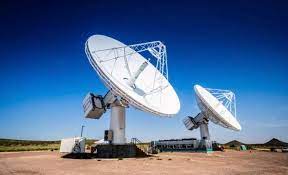New deep space radar will transform UK security

London: A new landmark radar initiative with the UK’s closest partners will increase UK security by being able to better detect, track and identify objects in deep space.
The Deep Space Advanced Radar Capability (DARC) programme – unveiled by the respective Defence Secretaries of Australia, the United Kingdom and the United States – will provide 24/7, all-weather capabilities that will increase AUKUS nations’ ability to characterise objects deep in space up to 22,000 miles (36,000 kilometres) away from earth.
DARC will see a global network of three ground-based radars to be jointly operated that will assist in critical space-traffic management and contribute to the global surveillance of satellites in deep space. The unique geographic positioning of the three nations means that DARC can provide global coverage, including detecting potential threats to defence or civilian space systems.
As the danger of space warfare increases, this landmark capability will benefit all three nations’ land, air, and maritime forces, as well as protecting critical infrastructure and benefitting our domestic construction and space industries.
UK Defence Secretary, Grant Shapps said: “As the world becomes more contested and the danger of space warfare increases, the UK and our allies must ensure we have the advanced capabilities we need to keep our nations’ safe.
Today’s announcement of a global radar network (DARC), based across the UK, US and Australia will do just that. Empowering the UK to detect, track and identify objects in deep space.
Cawdor Barracks in Pembrokeshire Wales has been identified as the UK’s preferred site for DARC. The final siting decision is conditional on the results of the ongoing comprehensive MOD-funded Environmental Impact Assessment and subsequent Town Planning application.
Cawdor Barracks is currently the home to a British Army Signals Regiment which is due to relocate from 2028. Retention of the Base by the MOD for DARC is likely to boost the local Pembrokeshire economy, creating employment during the construction phase and providing up to 100 longer-term jobs.
Alongside DARC’s defence benefits, it also has the capability to monitor and protect the essential services that rely on satellites in space, including everyday aspects of life such as communications and navigation.
This will play a crucial role in AUKUS’ ability to preserve peace and deter conflict in the Indo-Pacific and the rest of the world.
These new radar systems have higher sensitivity, better accuracy, increased capacity, and more agile tracking than current radars and optical systems tracking objects in deep space orbit. This will see greater global monitoring provided to inform UK defence operations, bypassing the current inclement weather and daylight limitations of some current capabilities.
The first DARC radar site, which is being constructed in Australia, is expected to be operational in 2026, with all three sites operational by the end of the decade.
The DARC programme follows the signing of a Memorandum of Understanding in September 2023. DARC will enhance our collective space domain awareness, which is a key objective of the UK’s Defence Space Strategy, published last year.
AUKUS is a landmark security and defence partnership between Australia, the UK, and the US to support a free and open Indo-Pacific by strengthening regional global security. The development of DARC is a significant step forward for delivery of enhanced security capabilities between the partner nations.





